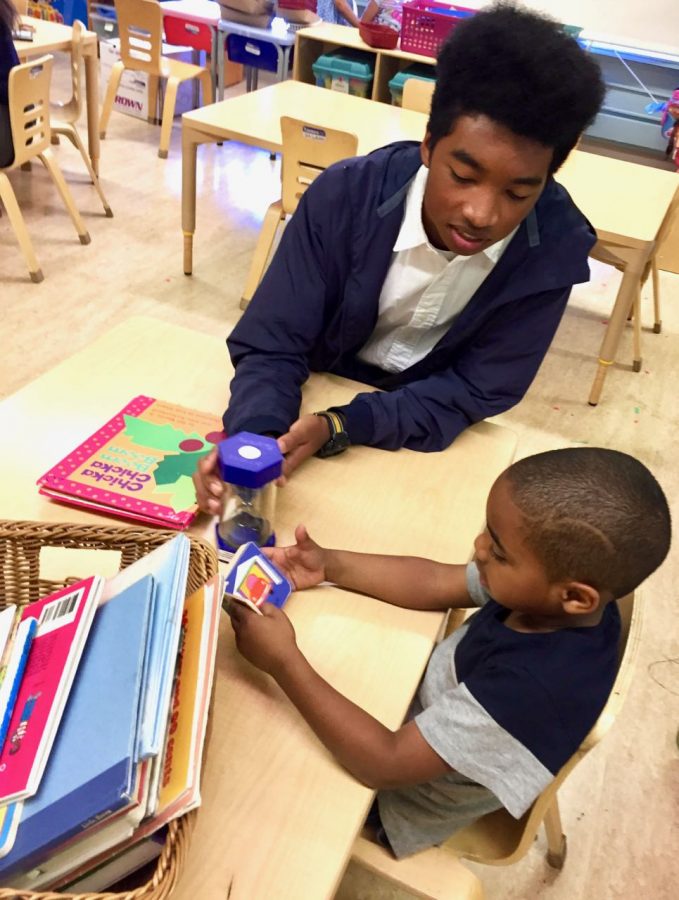Learning outside the classroom
Justice class partakes in service internships as part of curriculum
Phoenix Aquino-Thomas ’18 plays with a student during his lunch break as a part of the service requirement for his theology class. Students engage in service at sites all around the city.
Though seniors enrolled in the Justice: Theory and Society class have completed their compulsory 75 hours of service, Theology & Spirituality Director Raymond O’Connor’s course still includes mandatory service internships as a key part of the curriculum.
The class gives students the option of serving at a variety of locations around the city such as elementary schools, food banks, and LGBT support centers. Most of the sites are relatively close to Stuart Hall, and students spend one class period per week serving at their site.
“When I started working here in 2001, I asked if I could teach the seniors,” O’Connor said. “I implemented this service-learning model that I was working on. I would ask the students what kind of service they would like to do, and I’d look at the community to see the needs around us.”
Work at a service organization ranges from filling bags of black beans to sweeping floors, to teaching and playing with small children. The work has to be completed over the course of a single class period, with time to spare for transportation.
“I work at Redding Elementary School,” Lucas Miller ’18 said. “We each teach and tutor in a different grade. In fourth grade, I help them out and hang out with them during recess.”
Students, especially those serving at elementary schools, say they greatly enjoy their work and find it different from the service they have done previously because it actually enhances the class they are taking.
“I feel that I work well with kids,” Jorim Powell ’18 said. “Every time I play with a kid or I see their smile, it just brightens up my day, even if I’m having a bad one.”
Organizations like soup kitchens that require a lot of work to maintain, claim to find students’ weekly service invaluable.
“I don’t know exactly how [Stuart Hall High School] chose us,” Project Open Hand Operations Coordinator Daniel Cohen said. “But right now [Stuart Hall] is the only school we are working with for volunteer hours, and the six [students] that come here have all been doing really good work. Even when it’s just an hour, every bit of labor that [they] all add helps because we have so much production we need volunteers for. We literally couldn’t do it without [them].”


